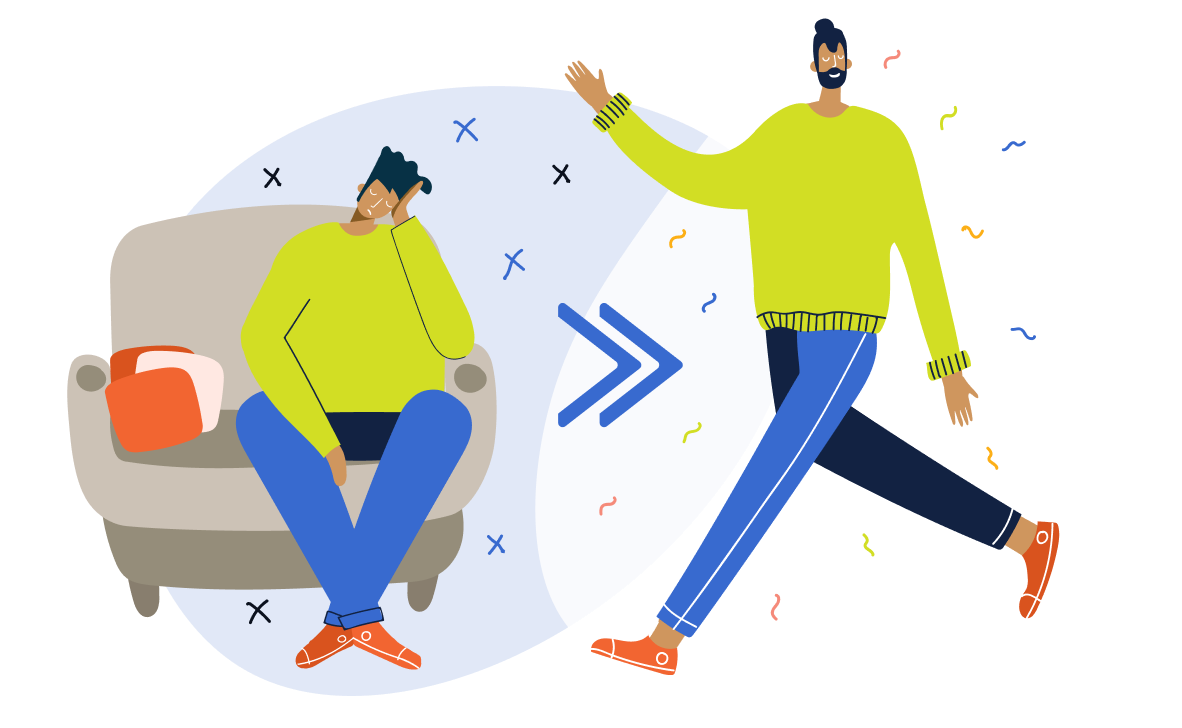Getting a Higher Education: Rights and Accommodations
 If you need special supports or accommodations to succeed while you are in high school, the Individuals with Disabilities Education Act (IDEA) requires that a well thought-out Individualized Education Program (IEP) be developed and updated yearly.
If you need special supports or accommodations to succeed while you are in high school, the Individuals with Disabilities Education Act (IDEA) requires that a well thought-out Individualized Education Program (IEP) be developed and updated yearly.
Once you graduate from high school and begin postsecondary education, you will no longer have an IEP and the IDEA will no longer apply. The laws and types of support you can get will be different.
It’s important that you understand these changes. We will briefly discuss these issues here. The U.S. Department of Education also has a short set of questions and answers that explain your rights in college.
Remember your IEP
The transition section of the IEP identifies your postsecondary goals in education, training, employment and, if necessary, independent living. It also looks at the transition services, courses, and activities that you can do while in high school that will help you to move on after you graduate.
Even if you’ve already finished high school, your IEP can still help you. It can remind you of the types of accommodations you’ve used in the past and which ones were useful. This will help you as you think about what accommodations you need for college.
Laws that Apply to Postsecondary Education
There are two major laws that make sure colleges and other postsecondary schools treat students with disabilities equally: Section 504 of the Rehabilitation Act of 1973 and the Americans with Disabilities Act (ADA). Here we provide very basic descriptions of the two. If you want more details, PACER has a good description of their most important aspects.
Section 504
Section 504 says that any school that gets federal funding must make sure that students with disabilities are not excluded. Almost all postsecondary schools receive some form of federal funding, even private schools, meaning they must abide by Section 504 rules.
Section 504 specifies that schools must provide appropriate supports and accommodations so that students with disabilities can participate equally in classes, activities, housing, and any other aspects of school.
Americans with Disabilities Act
When applied to postsecondary education, the Americans with Disabilities Act (ADA) is not much different than Section 504. The biggest difference is that the ADA also applies to schools that don’t receive federal funding.
Summary of key rights related to postsecondary education
- You cannot be denied admission because of a disability.
- You do not have to tell the school about your disability, but you do have to tell them if you want accommodations.
- Your school has to provide accommodations for all classes, on-campus or school-sponsored extra-curricular activities, and housing.
- Your school may require you to provide documentation of your disability in order to get accommodations.
- Accommodations and any other adjustments are made depending on your disability and needs. The school does not have to lower or change basic requirements, services, programs, or activities.
- You cannot be charged extra for academic adjustments, programs, or activities that are available to students without disabilities.
- Most schools have a Disability Services Office (it may have a different name). Go to it to deal with any issues, such as discrimination, getting accommodations, or academic adjustments.
Requesting Accommodations
In postsecondary education, an accommodation is a change or adjustment to facilities, classes, exams, extra-curricular activities, or other parts of the educational setting that allows you to fully participate.
In order to get an accommodation, you need to formally request it through your school’s disabled student services office. It is important to know that colleges and universities do not have to supply accommodations if they drastically change the curriculum of the class.
Examples of accommodations
Young people with disabilities sometimes aren’t sure what accommodations might help them with their education. If you’re in this situation, talk to your disabled student services office to see if they have any ideas about accommodations that could help you.
The following are examples of educational accommodations. There are many other possibilities not listed here:
- Testing accommodations — more time for tests, test taking in a quiet environment, or test proctoring
- Sign language interpreters
- Real-time captioning
- Classroom materials in an accessible format — large print, books on tape or CD, electronic text, or Braille
- Lab assistance
- Adaptive equipment
- Moving the classroom to a wheelchair-accessible location
- Note-taking services
- Tutoring
- Van service
Should I Tell My School About My Disability?
You do not have to disclose your disability to your school. However, if you need an accommodation in order to succeed, you should talk to the disability student services office or your school’s ADA coordinator. If you don’t tell them about your disability, you won’t be able to get the accommodations you need and that could set you up for failure.
When you and the disability student services office decide what accommodations are necessary, the office will inform your professor about that decision. The professor may ask you about the accommodation to make sure you receive it, but you do not need to reveal your disability to your professor.
Documentation
Your school will only give you disability services or accommodations if you need them. If you have a hidden disability, you may have to show them documentation proving that you have a disability and need accommodations.
For example, if you have a learning disability, you will have to take tests or have an evaluation done by a psychologist or another disability expert. Some schools may only recognize such tests if they were done within the last three years. This can be expensive. If you are still in high school, in some instances your school district may help you get documentation for free. Contact your district’s special education office for more information on requesting an evaluation. Most postsecondary schools will not pay for it.
Most importantly, find out if your school will require documentation before you enroll. That way you can be prepared to request your accommodation when you start school and won’t get behind.
Self-Advocacy
When you go to college, you become the person responsible for your education. You also become the primary person who needs to make sure your rights are respected. Making sure your rights are respected is also called “self-advocacy.”
Self-advocacy doesn’t mean you have to do everything by yourself. Your family and friends can give you support and many schools also have independent disabled student groups.
Whether to file a grievance
If you need an accommodation and your school’s disability services office won’t help, you may need to file a grievance. Every school has a grievance procedure that is explained in the student handbook.
If, after filing the grievance, you still can’t get your situation resolved, you may need to file a complaint with the U.S. Department of Education’s Office of Civil Rights. This should only be done as a last resort though. It is much faster and easier if you can work things out with your school.
The information above was republished from the Disability Benefits 101 (DB101) California website. DB101 is project of the non-profit World Institute on Disability.
Learn more
Find for more information on getting a higher education, finding a job, and benefits that may be available to young people with disabilities.
DB101 California is funded by:
- California Health Incentives Improvement Project Funded by a Medicaid Infrastructure Grant (MIG, from the Ticket Act of 1999)
- California Employment Development Department
- California Department of Rehabilitation
- California Department of Education
Source: DB101 California | Getting a Higher Education: Rights and Accommodations, https://ca.db101.org/ca/situations/youthanddisability/education/program2g.htm | Copyright © 2023
The Schwab Learning Center at CHC helps college and high school students with diverse learning challenges succeed in all areas of their lives. Register for support with a learning specialist at the Schwab Learning Center at CHC.





